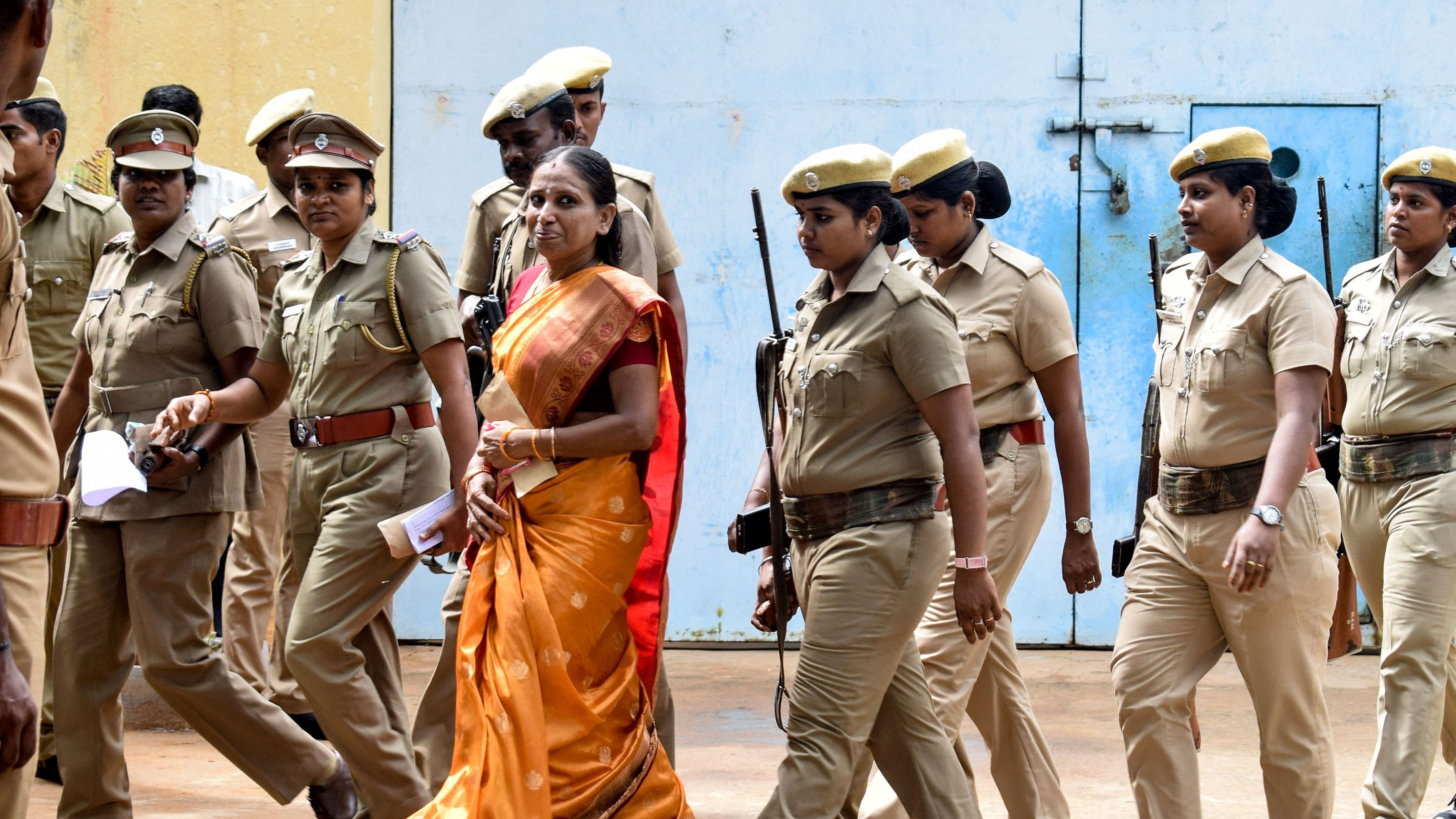
With the Supreme Court releasing all six convicts in the Rajiv Gandhi assassination case, the focus is now on four Sri Lankan nationals among them whose fate will be decided by the Union Government.
Murugan, husband of Nalini accused of harbouring Dhanu who triggered the belt bomb killing Rajiv Gandhi instantly at a public meeting in Sriperumbudur on May 21, 1991, Santhan, Jayakumar and Robert Payas, are the Sri Lankan citizens who were sent by the once dreaded Liberation Tigers of Tamil Eelam (LTTE) to execute the operation.
Nalini, Ravichandran, and Perarivalan – the other three convicts in the case are Indian nationals. Perarivalan was released by the Supreme Court in May 2021. While Nalini and Ravichandran can live the way they want after their formal release, the four Sri Lankan nationals will be constrained by the law.
Nalini, who married Murugan and gave birth to a girl child while in prison, might be willing to relocate to Europe where her daughter lives provided she gets travel documents. Nalini’s daughter lives in a European country along with her paternal grandmother.
It is believed that all the four Sri Lankans entered India without any travel documents in the 1990s – Robert Payas and Jayakumar registered themselves as refugees -- and hence they are illegal immigrants in the eyes of the Indian law.
Sources said the Union Government may send the four Sri Lankan nationals back to their home or a country of their choice like what happened with many other convicts after their release by the High Court in 1999. Most of them might opt to move to European countries where their families or relatives are settled.
They said the four may also be moved to a relief camp immediately after their release as a stop-gap arrangement till a decision is taken on their status.
“The Supreme Court has set them free, but the four are still bound by the Foreigners Act of India, which holds their stay status in the amber zone. They don’t have any valid documents to stay in India. The sensible thing for the Union Government to do is to send them back to their homeland Sri Lanka", senior journalist and Sri Lanka expert R Bhagwan Singh told DH.
"Let Colombo take a call on what to do with them", Singh added.